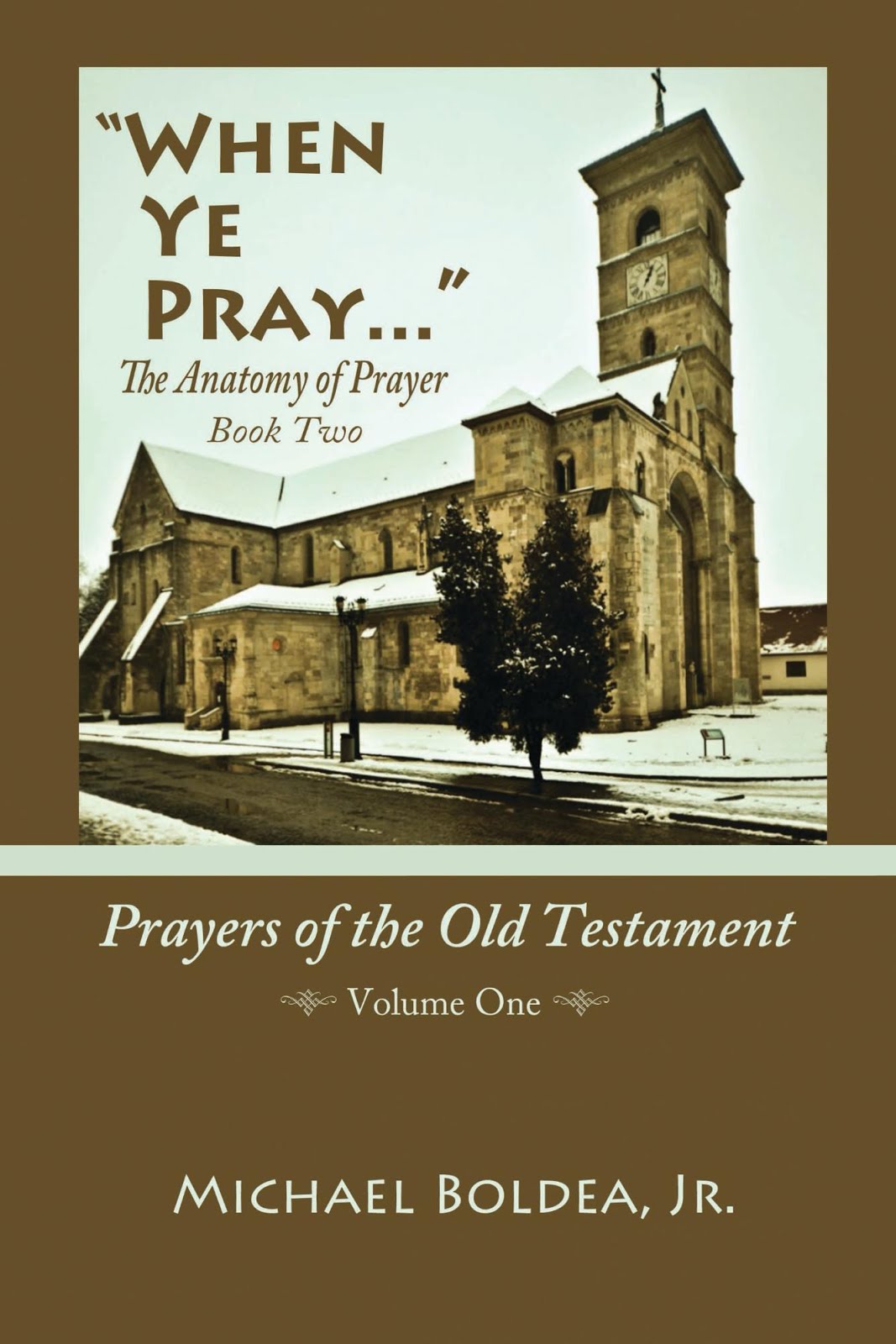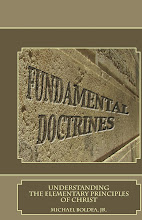As we progress toward the New Testament we begin to see something new taking shape in regards to judgment. The closer we get toward the end of the Old Testament, the more the focus is shifted from God’s judgment in the present, to the future judgment coinciding with the day of the Lord.
Joel 2:1, “Blow the trumpet in Zion, and sound an alarm in My holy mountain! Let all the inhabitants of the land tremble; for the day of the Lord is coming, for it is at hand.”
Amos 5:18, “Woe to you who desire the day of the Lord! For what good is the day of the Lord to you? It will be darkness and not light.”
Obadiah 15, “For the day of the Lord upon all the nations is near; as you have done, it shall be done to you; your reprisal shall return upon your own head.”
As we can see from these passages as well as others, the closer we get toward the end of the Old Testament, the more the focus is now on the day of the Lord which is coming, a Day of Judgment and justice.
As we head into the New Testament we see the continuity of judgment, and the fact that not only is it part of God’s nature, but also one of His essential attributes.
Romans 1:18-19, “For the wrath of God is revealed from heaven against all ungodliness and unrighteousness of men, who suppress the truth in unrighteousness, because what may be known of God is manifest in them, for God has shown it to them.”
1 Peter 1:17, “And if you call on the Father, who without partiality judges according to each one’s work, conduct yourselves throughout the time of your sojourning here in fear;”
There is one thing I need to point out concerning the passage we just read in Romans and that is the actuality of God’s judgment. The judgments of God are not limited to a future time, but rather they operate presently in the lives of men. The passage does not say, ‘for the wrath of God will be revealed from heaven against all godliness’, but rather, ‘the wrath of God is revealed’ in the now, in the present.
The notion of a future judgment however, is heavily accentuated in the New Testament, which will coincide with the return of Christ Jesus, and the Word of God proves out that it is Jesus who will be that great Judge.
Acts 10:42, “And He commanded us to preach to the people, and to testify that it is He who was ordained by God to be Judge of the living and the dead.”
2 Timothy 4:8, “Finally, there is laid up for me the crown of righteousness, which the Lord, the righteous Judge, will give to me on that Day, and not to me only but also to all who have loved His appearing.”
So now that we’ve established there is a judgment, and that Christ will judge both the living and the dead on that day, the question begs to be asked, why is judgment necessary? Why is the doctrine of eternal judgment worth discussing and understanding?
There are three major reasons why judgment is necessary, the first of them being to highlight the sovereignty and glory of God through the revelation of every individual’s eternal destiny. On judgment day, the principal purpose will not be the destiny of individuals, but rather the glory of God. He who sees all things, He who knows all things will execute righteous judgment.
The second reason that judgment is necessary is to reveal the measure in which every individual will receive their reward or their punishment. Once again, this is God territory, something that only God will be in charge of.
The third reason that judgment is necessary is to give God the opportunity to establish the verdict, to pass sentence, on every individual. It will be a great and terrible day, this Day of Judgment, great for those who received the Christ, who fell at the foot of the cross and repented of their sins, a terrible day for those who rejected the Lamb of God, who scoffed and mocked and despised the merciful creator of all.
We must also look at the practical applications of judgment for our daily lives of faith and by doing so we will first and foremost realize that the doctrine of judgment satisfies the inward sentiment and feeling of a need for justice in the world. We see injustice everyday of our lives whether in greater or lesser measure, and something inside us cries out for justice each and every time. The knowledge that there will come a day when all will be revealed, when justice will be done, when the righteousness of God will pass sentence on the sin, injustice, inhumanity and depravity of this world satisfies our constant need to see justice done. We realize that God’s universe is just, and that the Creator keeps a strict accounting of all things, and He will act accordingly. Yes, God knows all things, and on that day He will judge all things.
Looking at the doctrine of judgment from a different perspective we realize it also helps us in forgiving others because the truth that vengeance is not ours but the Lord’s is cemented in our hearts.
Romans 12:19, “Beloved, do not avenge yourselves, but rather give place to wrath; for it is written, ‘vengeance is Mine, I will repay,’ says the Lord.”
When we accept and acknowledge God as the righteous judge of all, we rest in the knowledge that He will avenge His own, that He will defend His own, and He will do a far better job than we can do on our own.
This biblical doctrine of eternal judgment also motivates us to live in righteousness, and good works that we might store up treasures in heaven, wherein neither moth nor rust can destroy them, and where thieves do not break in and steal. It is a principle encouraged by none other than Christ Jesus, and He assures us that what we have stored up in heaven is there in perpetuity. What we have stored up in heaven cannot be lost or stolen, it does not lose value, and it is not subject to inflation. It is safe and secure waiting for us to claim it.
For the unbeliever, the doctrine of eternal judgment is also a motivator to repent, it is a warning that the Bible itself declares sternly, that rather than scoff at the imminent return of Christ, and walk according to their own lusts, they ought to humble themselves and seek the forgiveness and restoration that can only come by way of Jesus.
Within the context of eternal judgment, we as children of God are also motivated to evangelize, to preach the gospel to the nations, to urge them to repent and return to God. God’s desire is that none perish, but this does not mean that none will. God’s pleasure is that the wicked turn from their ways, that they reconcile themselves unto God that they may be spared the eternal torments of everlasting judgment.
Ezekiel 33:11, “Say to them: As I live, says the Lord God, I have no pleasure in the death of the wicked, but that the wicked turn from his way and live. Turn, turn, from your evil ways! For why should you die, O house of Israel?”
Yes, there is an eternal judgment, a day of reckoning when the living and the dead will be judged in righteousness, and in light of this truth, we must live accordingly.
With love in Christ,
Michael Boldea Jr.
Thursday, June 30, 2011
Subscribe to:
Post Comments (Atom)










No comments:
Post a Comment